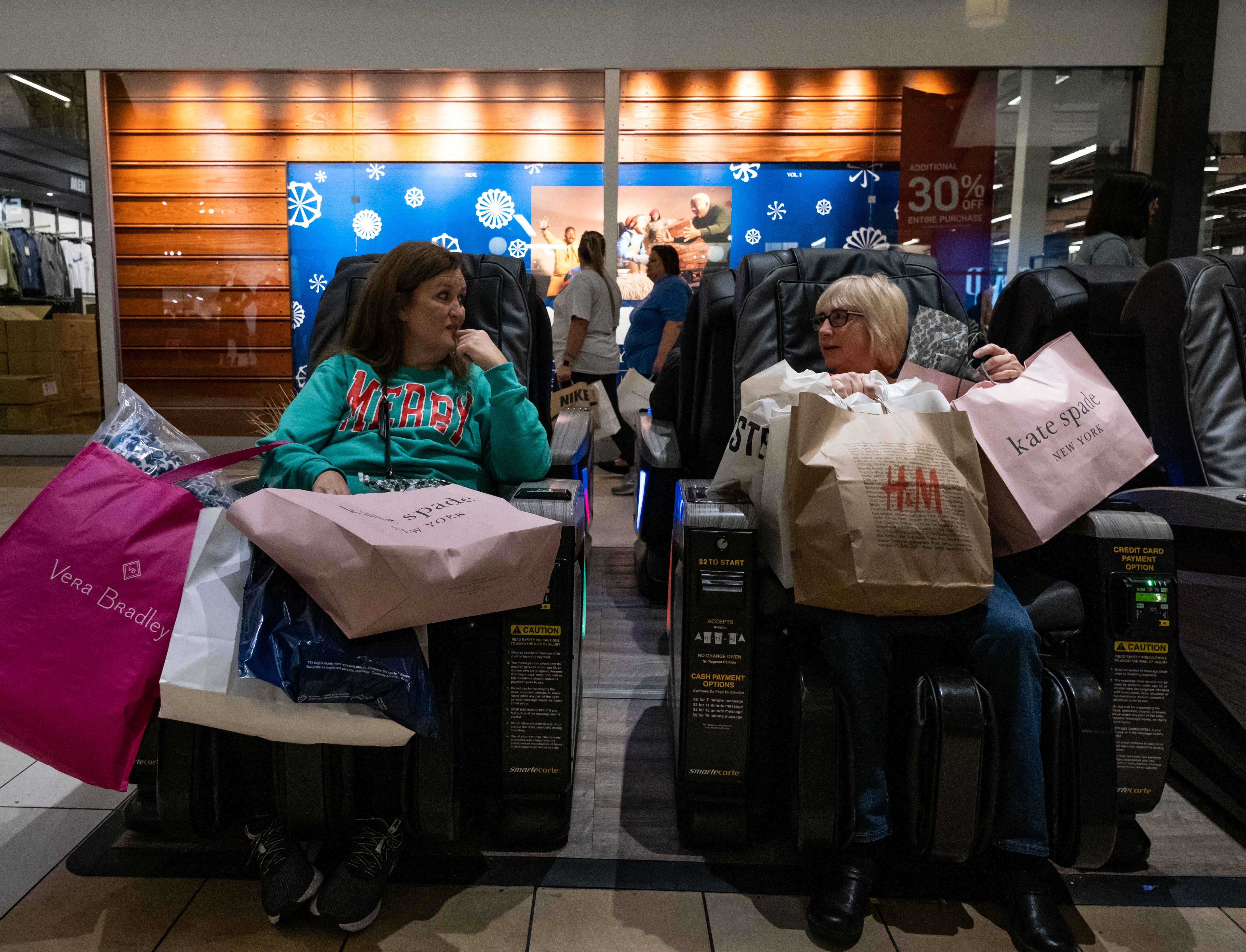- US
- US Money
Around a third of Americans think the US economy will get worse in 2026
Erin KellerIn OhioTuesday 25 November 2025 13:13 GMTComments
 CloseHoliday gift ideas for outdoor lovers
CloseHoliday gift ideas for outdoor lovers
The latest headlines from our reporters across the US sent straight to your inbox each weekday
Your briefing on the latest headlines from across the US
Your briefing on the latest headlines from across the US
 Email*SIGN UP
Email*SIGN UPI would like to be emailed about offers, events and updates from The Independent. Read our Privacy notice
Santa’s sleigh is looking a little lighter this year as a sizable number of Americans plan to cut back on holiday spending and, in some cases, not buy gifts at all.
Roughly two in five U.S. consumers (42 percent) say they intend to spend less this holiday season compared with 2024, according to a 2025 Economic Impact Survey commissioned by insurance company Nationwide.
Widespread economic uncertainty has seen Americans cutting back on holiday gifts, according to separate poll by financial services company Thrivent.
Even with easing inflation, the high cost of essentials like groceries, utilities, and rent is leaving many to prioritize bills and squirrel away savings over splurging on gifts.
What’s more, the Trump administration’s tariffs act like a regressive tax, particularly on lower-income households. They spend a larger share of their earnings on goods, many of which are imported, leaving them with a heavier burden, according to the Senate Committee on Small Business and Entrepreneurship.
.png) open image in galleryAbout 42 percent of American consumers plan to spend less this holiday season than they did in 2024, according to a new suvey (Getty Images)
open image in galleryAbout 42 percent of American consumers plan to spend less this holiday season than they did in 2024, according to a new suvey (Getty Images)Nearly every dollar earned by U.S. toy producers, as a result of tariffs, ultimately comes from consumers, hitting low-income families the hardest, according to the National Retail Federation, the world's largest retail trade association. The same data shows that toy prices could rise between 36 and 56 percent under certain tariff scenarios.
Tariffs could cost consumers $28.6 billion this holiday season, or about $132 per shopper, LendingTree, an online comparison marketplace, estimates. Electronics would be hit the hardest, at $186 per shopper, followed by clothing/accessories ($82), while food and candy would see the smallest impact ($12).
Consumer confidence has also fallen. Even financially secure people appear to be worried about job stability, rising interest rates, and a potentially weaker economy, according to The Conference Board, a nonprofit business organization.
Among those intending to cut back, nearly half (49 percent) expect to buy fewer gifts; 38 percent will opt for less expensive gifts; and 20 percent say they won’t buy any gifts, according to Nationwide.
The poll also found that the belt-tightening extends beyond the holiday budget. Some 47 percent of those asked are making fewer impulse purchases this year, while 41 percent are making fewer luxury purchases, and 32 percent say they are buying more used or secondhand goods instead of new ones.
A separate survey last month also found that financial concerns are affecting holiday spending, with 26 percent of Americans spending less on gifts than they did last year. However, 18 percent are spending more, according to the survey commissioned by mortgage lender Rocket Mortgage and real estate company Redfin.
The National Retail Federation projects a slight decrease in holiday spending compared to last year's record-setting figures. Americans will spend about $890 per person on gifts, food, and decor this holiday season, down from the $902 per person last year. Some 70 percent of this holiday spending will be allocated toward gifts, the federation noted.
Beyond the festive period, Americans appeared pessimistic about their prospects in the new year. Though 55 percent of Nationwide survey respondents say they feel secure in their personal finances, many remain cautious about the near future.
Around one-third of Americans (35 percent) think the U.S. economy will get worse in 2026. Among those worried about a downturn, 78 percent point to the risk of higher inflation, and 71 percent say global trade tensions and tariffs are major concerns.
 open image in galleryMore than one-third of Americans think the U.S. economy will get worse in 2026 (AFP via Getty Images)
open image in galleryMore than one-third of Americans think the U.S. economy will get worse in 2026 (AFP via Getty Images)Consumer caution is also reflected in major life decisions. Nearly half of those surveyed (48 percent) have delayed or canceled a vacation; 46 percent put off purchasing a car; 21 percent postponed having a baby; 19 percent delayed a wedding and 17 percent deferred retirement in the past year.
Meanwhile, one in five Americans say they are more in debt than a year ago, with the use of credit cards, personal loans and borrowing from retirement plans on the rise.
“Even though many Americans say they feel financially stable today, the way they’re behaving tells a different story,” said Kathy Bostjancic, Chief Economist at Nationwide, noting that while wages have improved, job growth is weak and inflationary pressures persist.
Despite the surface-level confidence about personal finances, the survey revealed that many consumers are preparing for a rocky road ahead in 2026.
Some 43 percent of Americans anticipate challenges with healthcare costs next year; 39 percent with paying off debt; 34 percent with retirement savings; and 31 percent with protecting investments from market volatility.
More about
holiday moneygiftsSurveyChristmasJoin our commenting forum
Join thought-provoking conversations, follow other Independent readers and see their replies
Comments.png?width=1200&auto=webp&trim=0%2C0%2C0%2C0)

